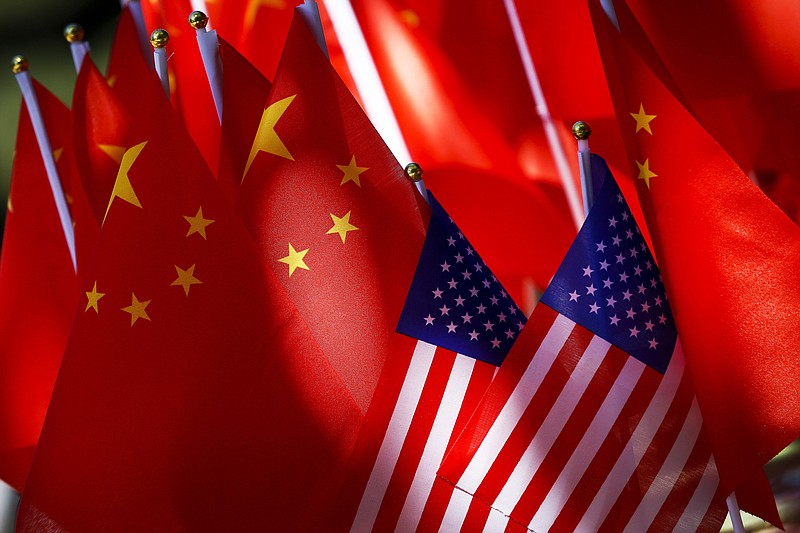BEIJING (AP) — China unveiled a slew of changes under mounting pressure from U.S. President Donald Trump over technology.
Beijing promised to cut tariffs, open its auto industry and buy American exports. But none of that was what Trump wanted: An end to development policies Washington said are based on theft of know-how and might erode U.S. industrial leadership.
Exporters scrambled to replace lost orders after Trump pulled the trigger in July with his first round of tariff hikes on $50 billion of Chinese imports. Waves of job losses loom over factory towns. So far, however, Chinese leaders express confidence in their $12 trillion-a-year economy and are refusing to budge on tactics they see as a path to prosperity and global influence.
The communist leadership appears no more likely to back down after Trump escalated their dispute Monday by approving penalties on an additional $200 billion of Chinese goods, according to economists, political analysts and business groups.
“Contrary to views in Washington, China can — and will — dig its heels in,” said the chairman of the American Chamber of Commerce in China, William Zarit, in a statement. “We are not optimistic about the prospect for a resolution in the short term.”
Trump’s complaints strike at the heart of the Communist Party’s view of itself as economic development leader — a venture capital investor on a national scale, boldly creating new industries.
That role has gained prominence since President Xi Jinping took power in 2012, despite the party’s 2013 pledge to give market forces a “decisive role” in the state-dominated economy.
Reform advocates complain state-owned companies that dominate banking, energy and other industries are getting bigger. They said that ignores the lessons of three decades of market-style changes that propelled China’s economic boom.
Beijing is still figuring out what Washington wants, Citigroup economist Li-Gang Liu said.
“The bottom line from the U.S. side is not clear,” Liu said in an email. “Without clarity as to what President Trump wants from the Chinese exactly, it is difficult to see any progress ahead.”
The ruling party sees initiatives including “Made in China 2025,” which calls for state-led creation of global champions in robotics, electric cars and other fields, as essential for raising incomes for China’s poor majority and restoring the country to its historic status as a technology and cultural leader.
Washington, Europe and other trading partners complain that explicitly nationalistic goals of creating Chinese global brands and promise subsidies to local competitors violate Beijing’s promises to treat companies equally. American officials also said Beijing steals or pressures foreign companies to hand over technology.
While rebuffing U.S. pressure, Beijing has unveiled other changes long sought by its trading partners.
The government announced in April it would allow full ownership of electric car manufacturers beginning this year and lift all ownership caps in the industry by 2020. Beijing agreed to join the European Union in proposing reforms of the World Trade Organization, which Washington complains is antiquated and unable to cope with Chinese-style challenges.
Chinese leaders appear to be wrestling with how to present their plans in a way that causes less foreign opposition, said Paul Haenle, director of the Carnegie-Tsinghua Center for Global Policy. He said there was “considerable debate” about how to handle Washington at the leaders’ annual summer retreat at the seaside resort of Beidaihe.
“I do think there is some internal debate about, Did we handle this right? Is there some way we can acknowledge to the U.S. side and others that we recognize there are changes we need to make?” Haenle said. But doing that without looking like Chinese leaders are “caving in to the United States will be a difficult endeavor to pull off.”

